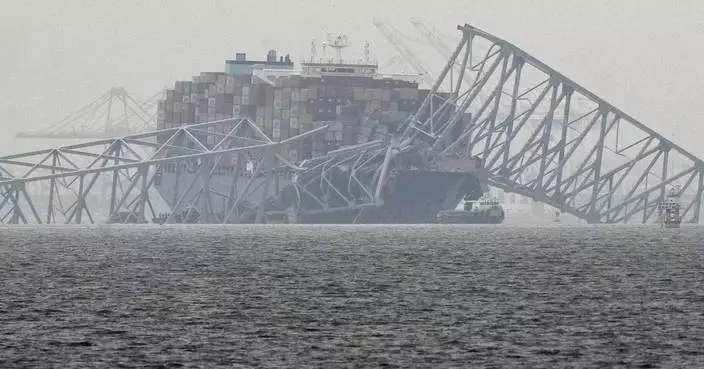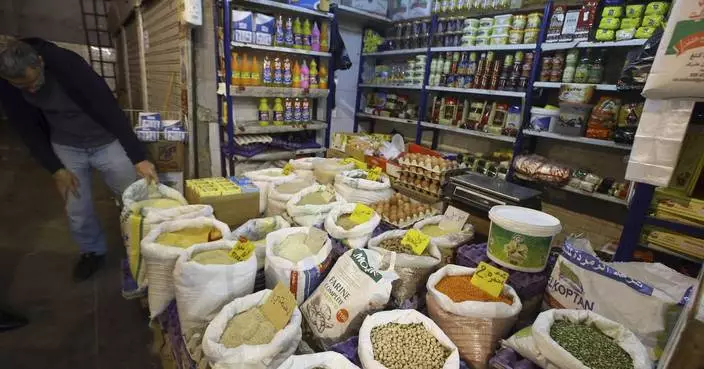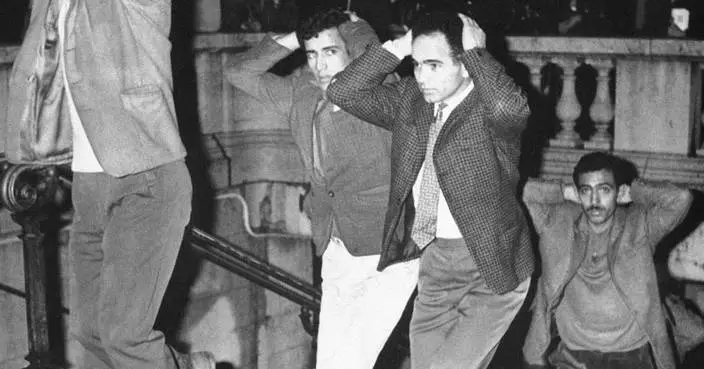Algeria's interim leader has announced Dec. 12 as the date for the presidential election, in line with the army chief's demand to fill the vacancy left when longtime leader Abdelaziz Bouteflika was pushed from office more than five months ago.
Abdelkader Bensallah during an address to the North African nation Sunday night called on citizens to make Dec. 12 "an historic day to make the dreams of our people concrete."
The powerful army chief, Ahmed Gaid Salah, has been pushing for elections as quickly as possible and even named Sunday as the date to announce them.
A pro-democracy movement holding weekly protests since February wants time to organize elections that ensure all traces of the old system are gone.
Bensallah took office as interim leader after Bouteflika, rarely seen since a 2013 stroke, was pushed out by protests in April following 20 years in power. Bouteflika's bid for a fifth term triggered the demonstrations.
The interim leader has overstayed his constitutional time limit of 90 days. In his address, he said elections will return the oil- and gas-rich country to "constitutional legality and allow our people to choose its future president freely and sovereignly."
Bensallah last week pushed through two electoral measures, including the creation of a body to oversee the voting process, and parliament quickly gave its approval. While the body is said to be independent, the person chosen Sunday to lead it is a former justice minister long linked to past administrations, including Bouteflika's.
The army chief has said the political vacuum in Africa's largest country must be filled with an elected president, and contended that the protesters are being manipulated by enemies from within and without.
That Bensallah followed through as he demanded suggests that the army, which has run the country at least from behind the scenes since independence, maintains its hold on political life.
Police, meanwhile, have increasingly cracked down on protesters. More than two dozen arrested during Friday's march were jailed, their lawyers told the TSA online media outlet. Karim Tabou, 51, a well-known figure in the movement, was jailed Friday on charges of undermining the military, causing concern among opposition politicians and protesters.
Numerous other citizens have been jailed since the Feb. 22 start of the peaceful demonstrations aimed at ridding Algeria of the Bouteflika era, mired in corruption. Among those jailed are people waving regional flags and, shocking for many, a veteran of Algeria's independence war with France that ended in 1962.
Protesters now demand that "political prisoners" be set free and many chant for the army chief to leave.
Gaid Salah is widely believed to be behind the crackdown, which also has seen Bouteflika's inner circle, including his brother Said, along with two once-powerful intelligence officials, jailed on treason charges. Many of the nation's top industrialists also are behind bars on corruption charges.
Elaine Ganley in Paris contributed.
ALGIERS, Algeria (AP) — An Algerian journalist was expelled from the country after flying in from France and not being allowed to leave the airport as journalists continue to face challenges reporting in Algeria.
Farid Alilat, a writer for the French-language magazine Jeune Afrique, wrote on Facebook that he spent 11 hours in police custody on Saturday at the airport before being boarded onto a plane and sent to France, where he has a residency permit.
Alilat said he regularly takes flights from Paris to Algiers to report on Algeria, where he has for years been a well-known journalist due to his work for French-language daily newspapers including Liberté, which was shuttered in 2022 amid financial problems and scuffles with the government and Algeria's state-owned oil company, both of which are major advertisers for the country's newspapers.
In a lengthy post in which he wrote of his deportation as if he were reporting on it, Alilat alleged that police officers on the tarmac in Algiers told him that they were acting on orders “from above.”
He said he was interrogated about his travels, who he has met with and about Jeune Afrique, which Algerian authorities believe favors their neighbor and regional rival, Morocco.
“I completely understand that my articles are a source of irritation. I am a free journalist. I cover the news of my country as a free and independent journalist,” Alilat wrote, noting that he was not given any verbal or written explanation for his expulsion.
He wrote that he had never previously heard of any issues from law enforcement or the courts in Algeria regarding his articles, including during a reporting trip in December 2023
Few Algerian media outlets reported on Alilat's expulsion and few politicians commented on it. Former Communications Minister Abdelaziz Rahabi called it “a measure from another era that serves neither the people nor the government.”
“No one can be arbitrarily deprived of the right to enter their own country," he wrote on Facebook.
The episode is the latest instance of Algeria's government restricting journalists from reporting in Algeria and comes while high-profile journalists, including editors Ihsane El Kadi and Mustapha Benjama remain in prison on charges related to using foreign funds to finance journalism and disrupting public order.
The government, however, has also resumed granting authorizations to journalists starting new media outlets or television shows and last year passed a law enshrining new protections for journalists.
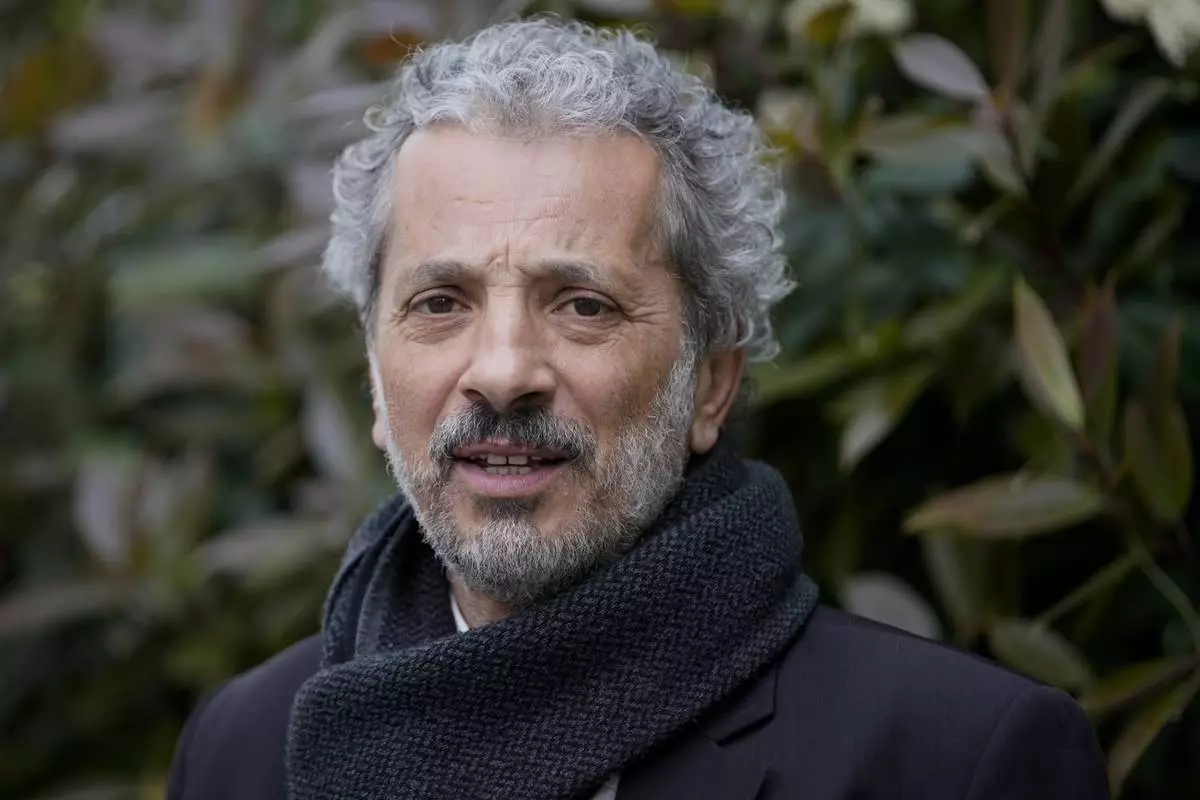
Farid Alilat, a writer for the French-language magazine Jeune Afrique poses for photo in Paris, France, Tuesday, April 16, 2024. Alilat was expelled from Algeria after flying in from France and not being allowed to leave the airport as journalists continue to face challenges reporting in Algeria. (AP Photo/Christophe Ena)
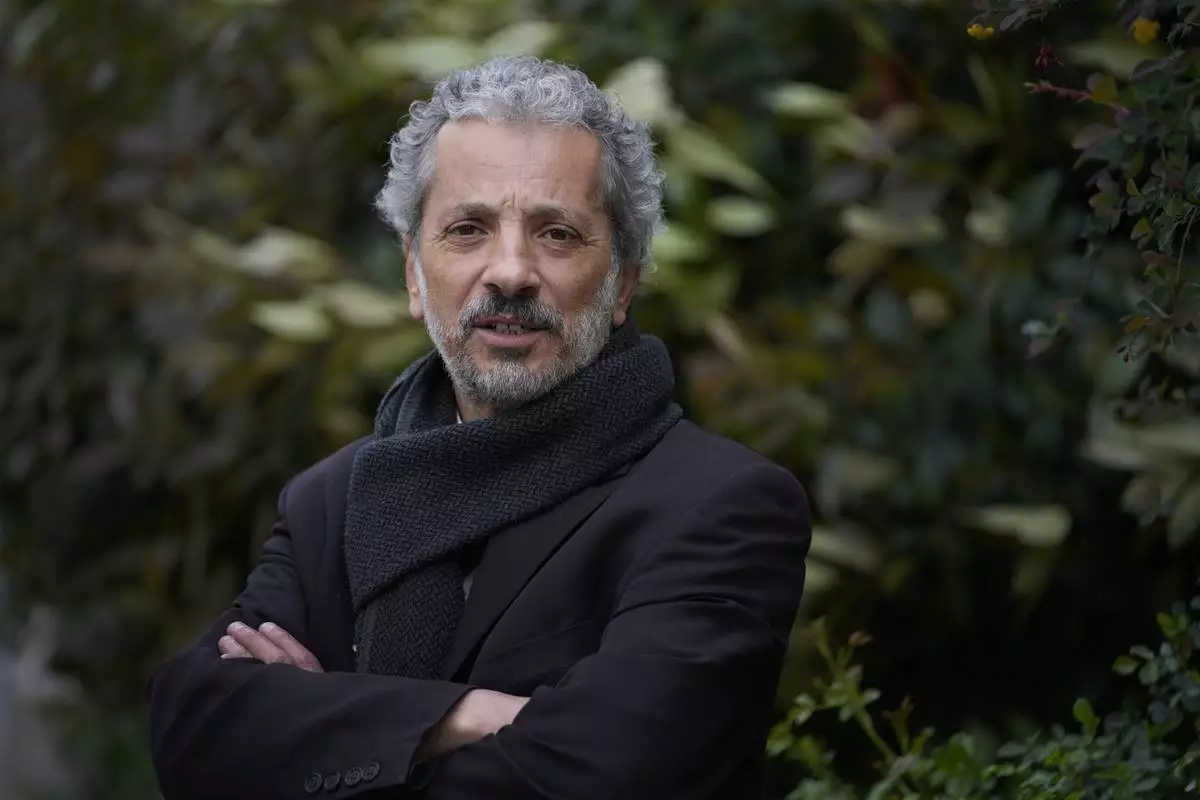
Farid Alilat, a writer for the French-language magazine Jeune Afrique poses for photo in Paris, France, Tuesday, April 16, 2024. Alilat was expelled from Algeria after flying in from France and not being allowed to leave the airport as journalists continue to face challenges reporting in Algeria. (AP Photo/Christophe Ena)
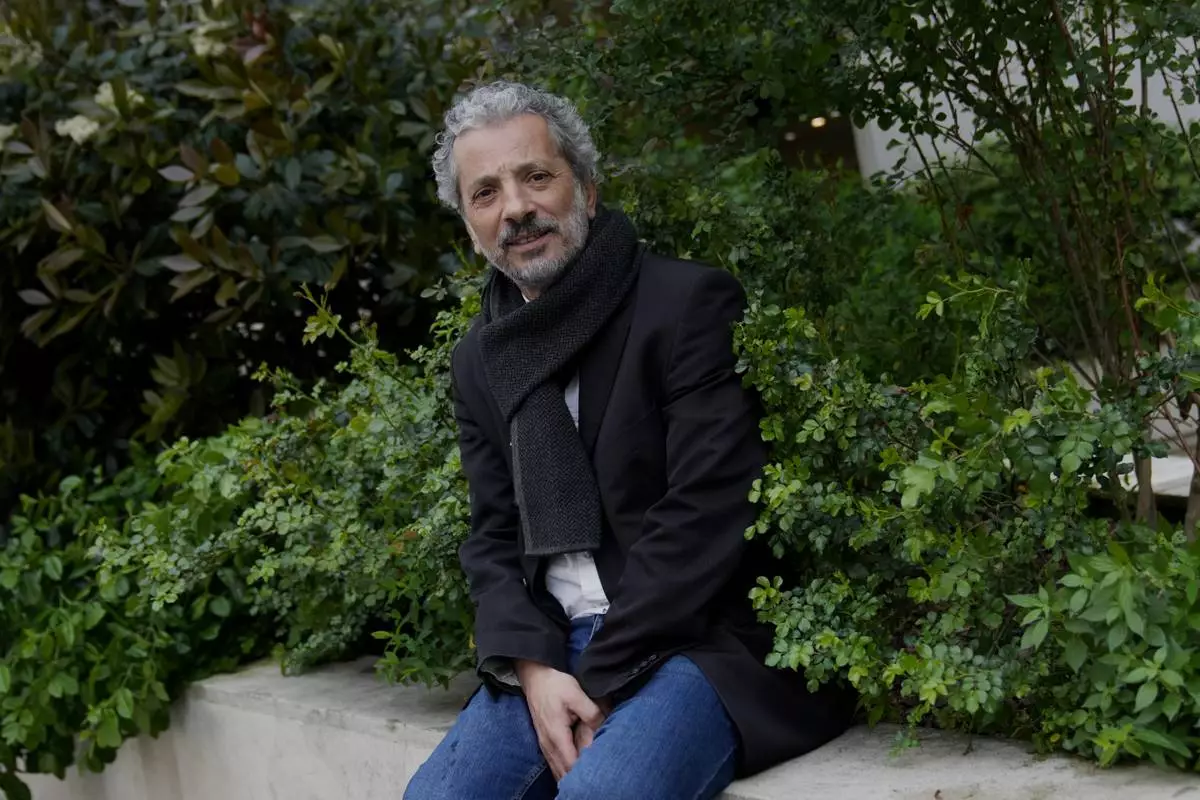
Farid Alilat, a writer for the French-language magazine Jeune Afrique poses for photo in Paris, France, Tuesday, April 16, 2024. Alilat was expelled from Algeria after flying in from France and not being allowed to leave the airport as journalists continue to face challenges reporting in Algeria. (AP Photo/Christophe Ena)







